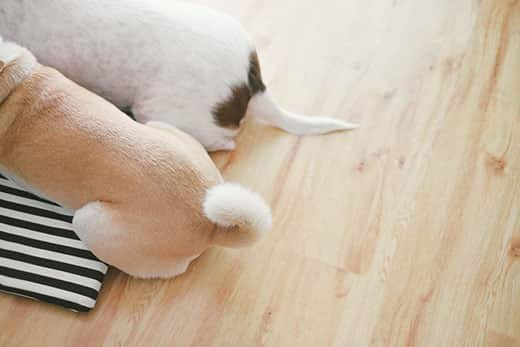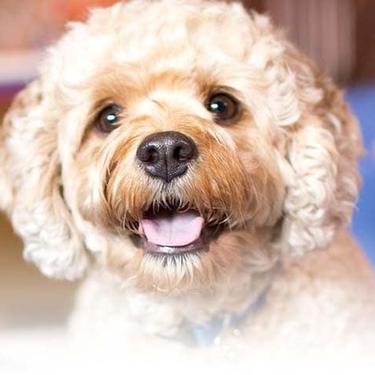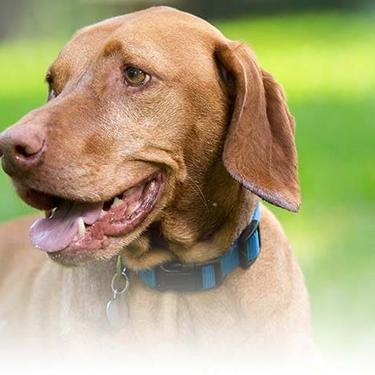
-
Find the right food for your pet
Take this quiz to see which food may be the best for your furry friend.
Find the right food for your pet
Take this quiz to see which food may be the best for your furry friend.
Featured products
 Adult Healthy Cuisine Roasted Chicken, Carrots & Spinach Stew Dog Food
Adult Healthy Cuisine Roasted Chicken, Carrots & Spinach Stew Dog FoodDelicious roasted chicken paired with tender vegetables in a succulent stew
Shop Now Small & Mini Savory Stew with Chicken & Vegetables Dog Food
Small & Mini Savory Stew with Chicken & Vegetables Dog FoodA delicious complement to the nutrition of Science Diet Small & Mini 7+ dog food
Shop Now Adult 7+ Perfect Digestion Chicken, Whole Oats & Brown Rice Recipe Dog Food
Adult 7+ Perfect Digestion Chicken, Whole Oats & Brown Rice Recipe Dog FoodScience Diet's breakthrough nutrition supports ultimate digestive well-being & healthy microbiome for dogs age 7+
Shop NowFeatured products
 Adult Savory Entrée Can Variety Pack Cat Food
Adult Savory Entrée Can Variety Pack Cat FoodPrecisely balanced nutrition with the delicious taste of savory minced chicken to help fuel the energy needs of cats during the prime of their life
Shop Now Adult 7+ Senior Vitality Chicken & Vegetable Stew Cat Food
Adult 7+ Senior Vitality Chicken & Vegetable Stew Cat FoodImproves Everyday Ability to Get Up & Go
Shop Now Adult 7+ Tender Tuna Dinner Cat Food
Adult 7+ Tender Tuna Dinner Cat FoodWith delicious chunks in a decadent gravy
Shop Now -
Dog
- Dog Tips & Articles
-
Health Category
- Weight
- Food & Environmental Sensitivities
- Urinary
- Digestive
- Joint
- Kidney
-
Life Stage
- Puppy Nutrition
- Adult Nutrition
- Senior Nutrition
Cat
- Cat Tips & Articles
-
Health Category
- Weight
- Skin & Food Sensitivities
- Urinary
- Digestive
- Kidney
-
Life Stage
- Kitten Nutrition
- Adult Nutrition
Featured articles
 Why Are Dogs and Cats So Cute?
Why Are Dogs and Cats So Cute?If waggy puppy dog tails and furry kitten yawns make you swoon, you're not alone. Why are cats so cute? And, dogs too! Let's find out!
Read More Does My Pet Hate Me?
Does My Pet Hate Me?Learn tips for bonding with your pet if you've ever thought, 'My dog doesn't like me, or 'Why do I have a standoffish cat?'
Read More Do Dogs and Cats have Belly Buttons?
Do Dogs and Cats have Belly Buttons?Learn whether cats & dogs have belly buttons like humans, what the function is, and if there are any health concerns associated with it.
Read More -


Is your dog losing hair on their tail? You might be curious if it is just falling out, a result of your dog chewing hair off their tail, or another larger health concern. Your dog's itchiness and red skin could be caused by an allergy, fleas, hormones, some kind of behavioral disorder, or in rare cases, a food allergy.
While the exact cause of a dog losing tail hair cannot be determined without the assistance of your veterinarian, there are clues to notice at home beforehand that can be valuable information for your vet.
Is Your Dog Chewing Hair Off Their Tail?
The most important thing to notice is whether your dog is chewing on their tail or not. A dog chewing hair off their tail will have rough, frizzy, and broken hair on the tail. The hair may also be wet with saliva. In addition, the skin on the tail will likely be red, inflamed and could have open sores from aggressive chewing.
If your dog is chewing, then it could be a flea allergy, especially during warmer months when fleas are more active. If your dog is allergic to fleas, just one bite can cause them to go crazy and chew their tail severely enough to create open sores. Flea allergy dermatitis is the number one cause of excessive tail chewing in dogs and may require flea treatment, antibiotics and/or steroids to stop the itching.

Other allergies can also result in tail chewing. A dog losing hair on their tail may be the result of a condition called atopy (environmental allergies) or food allergies. Dogs with these types of allergies may benefit from a therapeutic food and your veterinarian can provide this specific nutritional recommendation when needed.
Another reason a dog may be chewing their tail is because of anal gland issues. If you notice your dog licking and chewing their anus in conjunction with scooting, or if the anus looks swollen, then anal glands may be the problem. Treatment for anal gland issues could include anal gland expression, antibiotics, pain medication and possibly surgery if the anal gland is infected or abscessed. If your dog has repeated anal gland issues, your veterinarian may also recommend a therapeutic food.
Another (gross) cause of tail chewing could be intestinal worms. Tapeworms coming out of the anus can be irritating and cause your dog to lick and chew the anal area. The most common symptom of tapeworms is seeing rice-grain-like organisms adhered to your dog's bum. Tapeworms require fleas for their life cycle, and dogs who have fleas can have tapeworms as well — double gross! If you or your vet suspect intestinal parasites, then deworming medication is indicated, and if tapeworms are suspected, flea control is in order, as well.
In some cases, dogs can chew the hair off their tails in response to pain. Conditions such as arthritis in the tail, a broken tail, a foreign body like a foxtail stuck in the tail's skin, or lower back pain can all result in excessive tail grooming. Emotional distress from anxiety or fear and behavioral disorders, such as compulsive tail-chasing, can also cause excessive tail chewing. Each of these conditions requires different treatment, so talk with your vet. If your dog is chewing their tail due to behavioral reasons, your vet may recommend a certified dog behaviorist to discuss how to help your dog.


Tasty Tips
Is Your Dog's Tail Hair Falling Out?
If your dog isn't actively chewing and the tail is still going bald, then it may be time to look into other potential underlying causes. In dogs who are losing hair on the tail without chewing, any hair present on the tail appears smooth and not broken, and the skin is smooth, not red or inflamed.
Hormonal problems, such as hypothyroidism or Cushing's disease, can cause hair loss on the tail and sides of the abdomen. Dogs with an underactive thyroid often have weight issues and are lethargic. In addition to other clinical signs, dogs with Cushing's disease can have skin infections and hair loss.
If your vet suspects a hormonal problem, then your dog needs to be tested for hormonal imbalances. Your vet will likely recommend blood and urine testing and possibly an ultrasound. If your dog has a hormonal imbalance, then there are medications available to help. Hypothyroidism is typically treated with a thyroid supplement, and Cushing's can be treated with medication or surgery.
If your dog is chewing the hair off the tail or losing hair due to hormonal issues, then hair regrowth can be expected once they stop chewing the tail or the hormonal condition is controlled. Remember: according to the College of Veterinary Medicine at the University of Tennessee, hair grows in cycles, so regrowth will depend on where your dog is in the hair cycle. Therefore, patience is key!


Dr. Sarah Wooten graduated from UC Davis School of Veterinary Medicine in 2002. A member of the American Society of Veterinary Journalists, Dr. Wooten divides her professional time between small animal practice in Greeley, Colorado, public speaking on associate issues, leadership, and client communication, and writing. She enjoys camping with her family, skiing, SCUBA, and participating in triathlons.
Related products

Delicious braised beef paired with tender vegetables in a succulent stew

A delicious complement to the nutrition of Science Diet Small & Mini 7+ dog food

Science Diet's breakthrough nutrition supports ultimate digestive well-being & healthy microbiome for dogs age 7+

Delicious roasted chicken paired with tender vegetables in a succulent stew
Related articles

Large and giant breed puppies have different nutritional needs than other dogs. Learn how to provide the special care they need to grow up big and strong.

Your dog's coat and skin are a big part of your dog's overall health. Ensure you keep your dog's coat healthy, by following these simple tips.

Learn about choosing the right food for your mature or older dog, ensuring he receives the correct balance of nutrition.

Hill's Science Diet Small & Toy Breed dog foods are designed to meet the nutritional needs for your small dog at every life stage. Learn more here.

Put your dog on a diet without them knowing
Our low calorie formula helps you control your dog's weight. It's packed with high-quality protein for building lean muscles, and made with purposeful ingredients for a flavorful, nutritious meal. Clinically proven antioxidants, Vitamin C+E, help promote a healthy immune system.
Put your dog on a diet without them knowing
Our low calorie formula helps you control your dog's weight. It's packed with high-quality protein for building lean muscles, and made with purposeful ingredients for a flavorful, nutritious meal. Clinically proven antioxidants, Vitamin C+E, help promote a healthy immune system.

